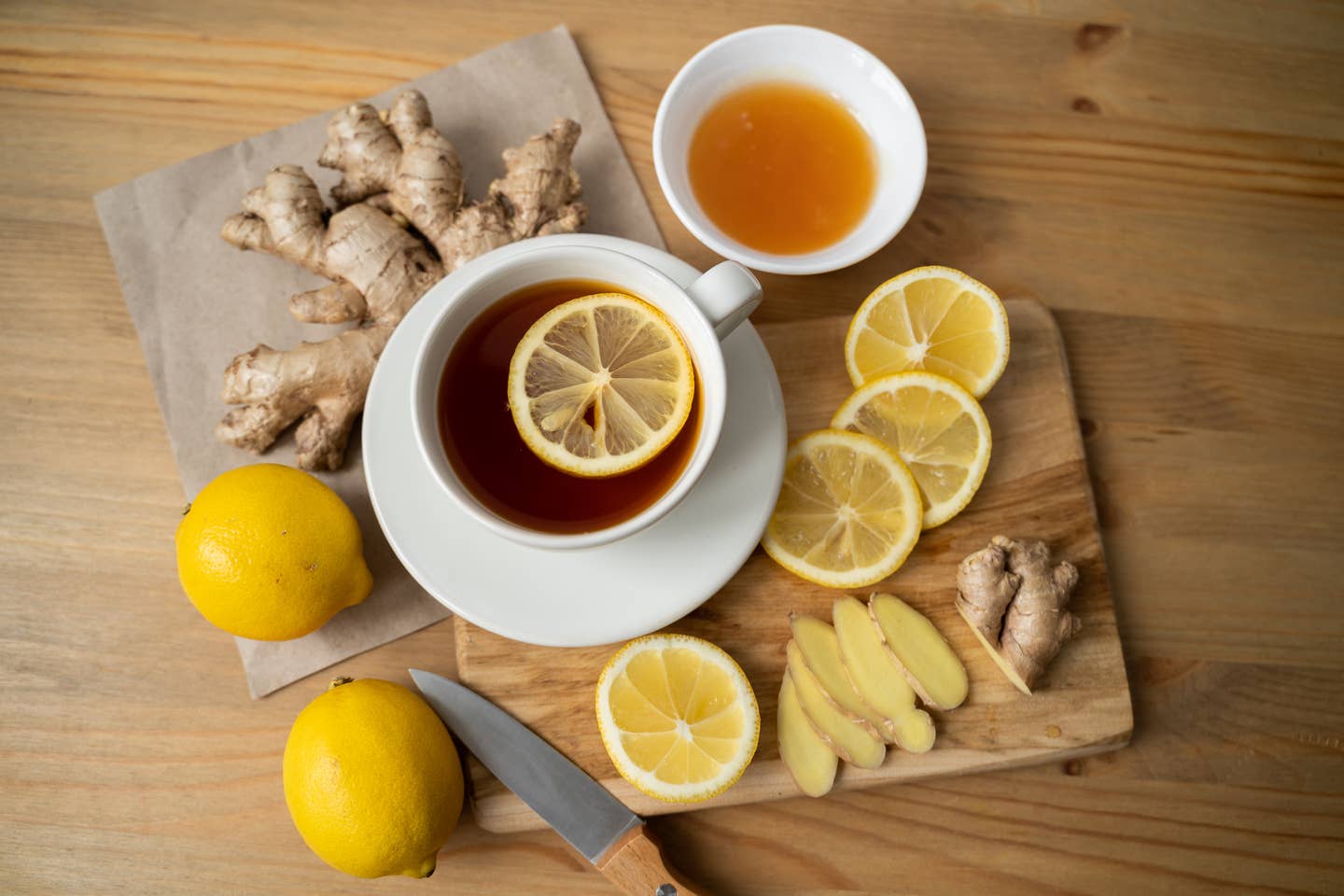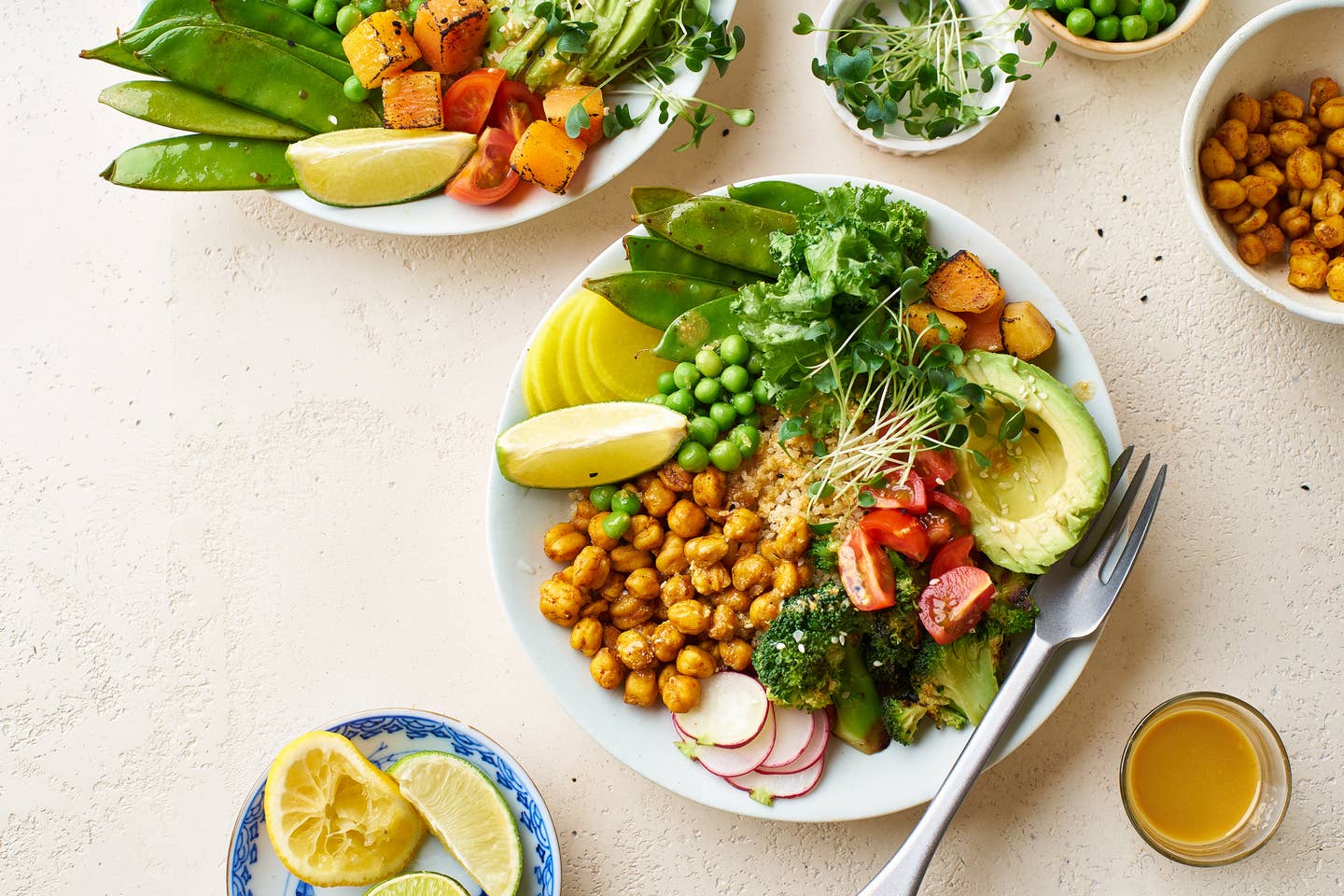
Is the Idea of “Boosting” Your Immune System a Myth? What the Experts Say
You hear it all the time: Eat this to boost immunity, or do that to boost your immune system. But does your immune system really need a boost? Or is it a myth that you can give your immunity a little help with just the right smoothie or superfood? That's the question we asked experts to find out whether it was true that you could boost your immunity or strengthen your reaction to the viruses, infections, inflammation, and rogue cancer cells or dead and dying cells that are in your body, right now, trying to make you sick. If not, what does help?
Your immune system is sometimes likened to an army of defenders, and the cells that do the patroling and send back alerts need to be on the constant lookout. Then there are the killer cells that act like a Seal Team that takes out the bad guys – whether it's a virus or a cancer cell. And all these immune cells need to be kept armed and ready to strike at all times.
Boosting Immunity May Be the Wrong Way to Think About it
The expert doctor we spoke to said that boosting your immune system is the wrong way to think about it. In fact, an overactive immune system is just as likely to create a problem as an underactive immune system. Inflammation is an overreaction to injury or stress, for instance, and your body is under constant bombardment from toxins, stress, viruses, and other threats (like cancer cells) so a more likely scenario is that your immune cells are already turned up to high alert and need to be calmed down a bit, or at least allowed to rest every once in a while.
Like inflammation, an allergic reaction (to gluten, or pollen) is also sparked by an overly active immune response to perceived harm or injury. As for inflammation, many of us live with chronic inflammation in our bodies that shows up as bloating or lethargy. Inflammation in blood vessels can hinder blood flow, and get in the way of the healthy exchange of fuel and waste through the cell membranes. Inflammation can lead to other health problems within and around the cells that our immune system is trying to protect.
What we need, instead of boosting, is an immune system that reacts appropriately.
That means it rises to the occasion (a threat) and then goes back into a calmer state. You want your immune system to be resilient, able to rev up as needed but not be in a constant state of overdrive. So is there any truth to the idea that you need to, or even can, boost immunity?
We asked an expert who works in clinical research, Dr. Austin Perlmutter, to explain the truth about immunity and our need, desire, and ability to "boost" it. We spoke with him from his office outside of Seattle, where he also is the Senior Director of Science and clinical innovation at Big Bold Health. Dr. Perlmutter and his colleague, Dr. Jeffrey Bland are experts in how immunity impacts weight control, sleep issues, and all types of illness, not just infection or communicable diseases.
Dr. Bland believes in the idea of immuno-rejuvenation rather than boosting the immune system. The idea of immuno-rejuvenation or immune resilience is that it relies on the body's own regeneration to strengthen and build up immunity over time, through diet and exercise.
The following interview with Dr. Austin Perlmutter has been slightly edited and shortened.
Does Your Immune System Need to Be Boosted?
"People want to think that a detox drink or a pill is going to fix what is incredibly complex, and nuanced, which is our immune system," explains Dr. Perlmutter. "But it doesn't happen in the short space of a single event, like drinking a vitamin-packed juice.
"The immune system is probably the most complex system in the human body ... as far as how many cells and signals are contained within it. The concept that throwing some vitamin C into this will fix all the problems is just not based on science. Even though it is a nice concept it isn't the case. Nor would we want it to be."
What Works to Create a Strong Immune System?
"Our bodies are incredibly intelligent. We have this innate wisdom in our immune system. Expecting to override that with something you see at the checkout in the drugstore negates everything we know about the complexity and wisdom of the human body."
Immunity is far more than a binary two-directional system, where it's either low or high.
"If a person has inflammation that's an indication of an overactive state of immune function. So boosting inflammation makes no sense.
"Additionally if a person is in a state of an allergic reaction, then that is a high level of immune function overreacting, so adding gas to that fire makes very little sense. And because our bodies are constantly in a state of being bombarded with toxins from food, pollution, and other sources, our immune systems are actually often in overdrive."
Rather than Boosting Your Immune System, Help It Become Resilient
"The term I would use is balanced and resilient. What we really want is an immune system that's able to respond to a new threat but not go overboard," says Dr. Perlmutter.
"Each of us each day gets exposed to hundreds or thousands of environmental inputs, and that could be allergens like dog hair, or in the spring, pollen. You want your immune system to know not to over-respond, but in some of us, it can over-respond and cause congestion and inflammation. So that's why we say we want an immune system in balance but not over-responding.
3 Things We Can Do Daily to Have a Healthier Immune System
- Lower the amount of stress in our lives.
- Eat more fiber and polyphenols from plants.
- Get the sleep we need.
The Role of Stress on Immune Health
It turns out that what we consume, even when it comes to the news, influences our immune system. We know that food will help us be healthier, but so can relationships, and the stress that we welcome into our bodies in the form of what we watch or listen to on our devices, says Dr. Perlmutter.
So as you think about being resilient and having a strong, healthy immune system, understand that everyday stress can impact just how high your immunity is turned up to "red alert" status, and that can have as much to do with what you take in as what you eat.
What We Consume Through Our Mouths, Eyes, and Ears Impacts Our Immunity
"The interventions that make the most sense that help to rejuvenate immune health is looking at the inputs and that involves paying attention to what you are taking in through your mouth and eyes and ears. So it's not just about the food that we eat.
"That means it's more than just food. Food is a huge part of that story, but it's also understanding that chronic stress – which is a huge problem in our modern-day – directly relates to inflammation and an imbalanced immune system.
"And where do we get that chronic stress? It's the content we consume through our eyes and our ears. So just like we need to be careful of what we eat when it comes to our food and eat a diet rich in polyphenols and omega-3s [found in plant-based foods] and we need to be careful about what is coming through our screens, and how we are interacting with other people."
Stress and the News Impacts Immunity
"So people don't realize that if you are trying to improve your immune function you have to pay attention to what you are consuming through those senses as well."
In the modern day, we love to think of ourselves as super advanced, but what we have is the benefit of technology. But our brains are not that different from 100,000 years ago. They are concerned about the things that are most likely to kill us, and threats to our environment. So we have an intrinsic interest in seeing what could harm us.
"You hear crime rates are going up and your brain thinks: This is something that could take me out of the game," says Dr. Perlmutter. That stress becomes a heightened response that cues your immune system to react. "It keeps us hooked to our primitive brain and even if it has no real impact on us, we think we are doing something positive for our health," but we are not.
Certain Foods Help Your Immune System Stay Resilient
"Many people have heard about the role of vitamins and minerals and macro nutrients on your health. So we will hear a lot about you needing vitamin D or C or zinc or selenium to be healthy, and sure enough, you need a baseline to be healthy. If you have a deficiency in zinc, for instance, you are going to have impaired immune health. When it comes to Vitamin D, we need more than just enough to not be deficient in vitamin D.
But there are other ways to impact our immune health beyond just looking on the back of food labels. That gets us to polyphenols.
You need fiber and polyphenols, which come from plants
Polyphenols have been shown to have a beneficial effect. These nutrients, which many of us know in their antioxidant capacity, influence the genetic expression within our body, but even more importantly they influence the microbiome.
"Our gut health is closely tied to our overall health and our immune health. So looking for foods that support our gut health is a great way to support your immune system." Why is that?
Because the majority of our immune system is located in your gut. Eating foods rich in polyphenols and high in dietary fiber is a great way to support immune health.
Fiber is found in fruits and vegetables, there are a ton of types of it. Researchers say that prebiotic fibers are linked to better health of the microbiome. and you especially want prebiotic fiber.
There are many types of fiber but the prebiotic kind is linked to the better health of the microbiome. These come in foods like Jicema, Jerusalem artichoke, and dandelion greens. Those are a little esoteric but the easiest way to get them is garlic and opinions. They taste great, and you don't have to go to any specialty food stores to find them. These are all rich in what's called prebiotic fiber.
Polyphenols are important to your microbiome
Polyphenols are in colorful fruits and vegetables. And another great way to get them is in herbs and spices. They are also in coffee and tea, and red wine, though it's not recommended starting to drink alcohol as a way of getting polyphenols. You can get them in a much healthier format if you prioritize herbs, spices, and colorful fruits and vegetables.
Foods to Avoid for Immunity: Refined Sugar and Flour
"Another thing we have to pay attention to is understanding that we are damaging our health overall by overdosing on sugary or refined carbohydrates. We are sabotaging our health with refined carbohydrates such as sugar and refined flour. These are associated with so many health problems, and because your immune system is tied to your microbiome, the more you stay away from refined carbs the healthier you will be.
"What I recommend is that people sub out their refined carbs with things that tend to be better for health that have more fiber and polyphenols."
"We recommend that people substitute their flour with one high in fiber and polyphenols called Himalayan Tartary Buckwheat. It's in essence an heirloom variety of buckwheat and what makes it so interesting is that compared to any seed or grain that you'd find on the market is that it's fortified in rutin, quercitin, luteal, and hesperidin. These are polyphenols linked to better health and better immune health."
As we are looking for foods to eat that are most supportive to our resilience, or foods that affect our immune system, we are learning that when we consume plants that have been stressed, that have had to deal with UVA radiation or drought or salinated soil, those plants contain more polyphenols, so eating stressed plants is a good way for us to improve our resilience against stress.
They have had to protect themselves against the environment so us eating plants that have become stress resilient helps us build our stress resilience. This plant by its definition has adapted to grow in the Himalayas which exposes it to extreme temperatures, very hot, very cold, and lots of UV radiation. This is a plant that has become adaptive and stress-resilient. As opposed to those crops like wheat. These plants have had to thrive with little assistance. It exists without the need for outside help.
"In comparison to any seed or grain on the market, Himalayan Tartary Buckwheat is richer in polyphenols, and also has more protein, prebiotics, antioxidants, and contains more rutin. Rutin is a phytonutrient known for its effects on immune and metabolic function.
"When you cook the flour, the rutin changes into quercitin. You get different nutrients depending on your microbiome. Polyphenols are not bioavailable until converted by our gut bacteria. So you have to pay attention to what you're eating.
"At the end of the day, eat more polyphenols and fiber for a healthier, most resilient immune system."
Sleep and the Immune System
"The single most important intervention for brain health: Sleep. Of all the things we can do to be healthier, sleep is the one you can do. Exercise is not easy, and eating healthier is not always simple. But sleep regulates the immune system. Sleep and immunity have a bidirectional impact on each other. Sleep influences the immune system and vice versa. A little inflammation helps us sleep.
"Your body needs sleep to reset, rejuvenate and prepare for the next day. But if a person gets the flu, you need more sleep. So maybe the inflammation in the body says: It's time for sleep, it's time for repair. But when we look at what molecule kicks off sleep, it's an immune molecule. The immune system is a key part of telling you to go to sleep. The immune system significantly impacts the quality of our sleep and sleep impacts your immune system."
Rejuvenating Your Cells from the Inside Out With a Healthy Lifestyle
Dr. Mark Hyman has also written about the myth of "boosting" one's immune cells and instead wants people to think about rejuvenating them through lifestyle, healthy diet, sleep, and what he calls "good stress" such as learning a new sport, traveling, or taking a long bike ride.
Dr. Hyman has written about the difference between boosting your immune system and rejuvenating from within. His conclusion, in his words, from his blog:
- Boosting imbalanced or poorly-trained immune cells will only amplify immune dysfunction.
- Immuno-rejuvenation is our bodies’ natural system of refreshing immune cells for optimal immune function.
- Rejuvenation only happens when you let it, by eating well, staying vigorously active, giving positive stress an edge over the negative, and getting the rest you need to reawaken your rejuvenation and keep it active.
- If you want to prioritize rejuvenation and train your immune system toward a more youthful state, remember Dr. Bland’s big three nutrients — polyphenols, omega-3s, and prebiotics.
Bottom Line: To Create a Strong Immune System, Be Consistently Healthy
Lifestyle choices such as getting sleep, eating a diverse plant-based diet full of fruits, vegetables, and fiber, and exercising daily can all keep your immune system healthy. The idea of boosting it is the wrong way to go about it since a healthy immune system is resilient.
For more advice from industry leaders, check out The Beet's Ask the Expert articles.
More From The Beet






